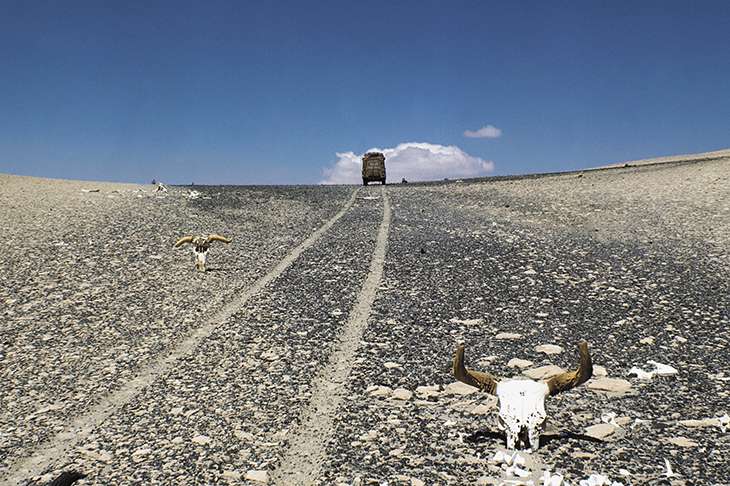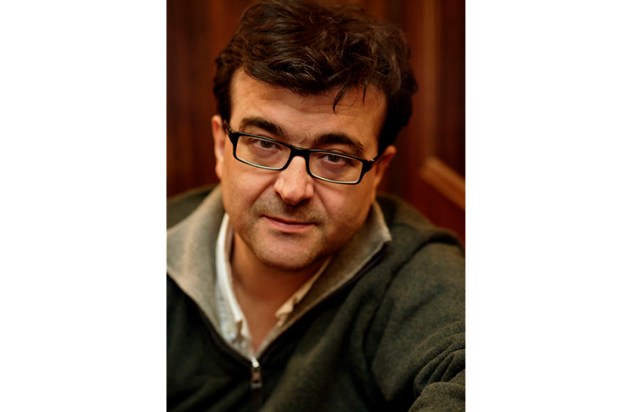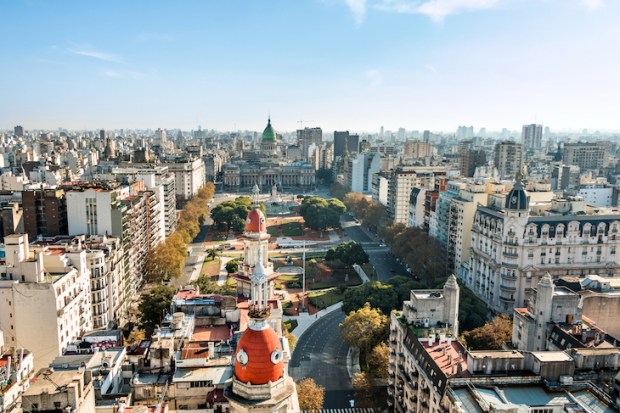You could call The Remainder a literary kaleidoscope: look at it one way and you see how the past lays a crippling hand on the generation that follows political catastrophe; shift the focus and you’re plunged into a darkly comic road trip with a hungover trio in an empty hearse chasing a lost coffin across the Andes cordillera.
The three protagonists are trapped in the past, obsessively dredging up and re-living the ruined lives of their parents, dissidents under Chile’s dictator, Pinochet. The terrors inflicted on the adults have profoundly scarred their offspring; the novel belongs to a category the Chilean novelist Alejandro Zambra has called ‘the literature of the children’.
In Santiago, grey ash is falling from the sky, cloaking the city with feathery dust. Felipe wanders the streets, counting dead bodies (real or imaginary), fixated on the official death toll of long-ago ‘disappearances’ – including that of his father. His only friend, Iquela, has withdrawn into strictly regulated inertia, tied to her widowed mother, dreaming of a way to move on, to a life of her own.
This hermetic world is shattered when Paloma, a chain-smoking, impossibly cool figure from their childhood, arrives, insisting they help find her mother’s coffin, lost in transit from Berlin. All three, in different ways, are imprisoned in the aftermath of a history that follows them like a shadow. A pivotal memory they endlessly revisit: the delirious referendum night of 5 October 1988, when the people voted to topple Pinochet.
Fortified with pisco and some powerful recreational substances, the three stumble into a seedy funeral parlour and talk their way into borrowing a hearse. With Iquela and Felipe taking turns as narrator – and driver – they head off in search of the missing coffin, high on alcohol and adrenalin, swiftly plummeting from elation into recrimination, despair, small betrayals and some fumbling sex.
When they blearily fetch up at a deserted Argentine airport, a grim-faced official demands documents they haven’t bothered to collect. What next? Of course, the search for the corpse has always been a McGuffin: the true journey is an interior odyssey: their way out of the past.
This is Alia Trabucco Zerán’s first novel, and winner of a PEN prize. Her spring-heeled prose moves lightly from lyrical to demotic, bawdy to elegiac. She brings the trio touchingly to life. The final chapter, as Felipe cuts free of reality to find wings, has a soaring ecstasy that comes closer to anything I can recall to describing how it feels to fly like bird.
Got something to add? Join the discussion and comment below.
Get 10 issues for just $10
Subscribe to The Spectator Australia today for the next 10 magazine issues, plus full online access, for just $10.
You might disagree with half of it, but you’ll enjoy reading all of it. Try your first month for free, then just $2 a week for the remainder of your first year.













Comments
Don't miss out
Join the conversation with other Spectator Australia readers. Subscribe to leave a comment.
SUBSCRIBEAlready a subscriber? Log in